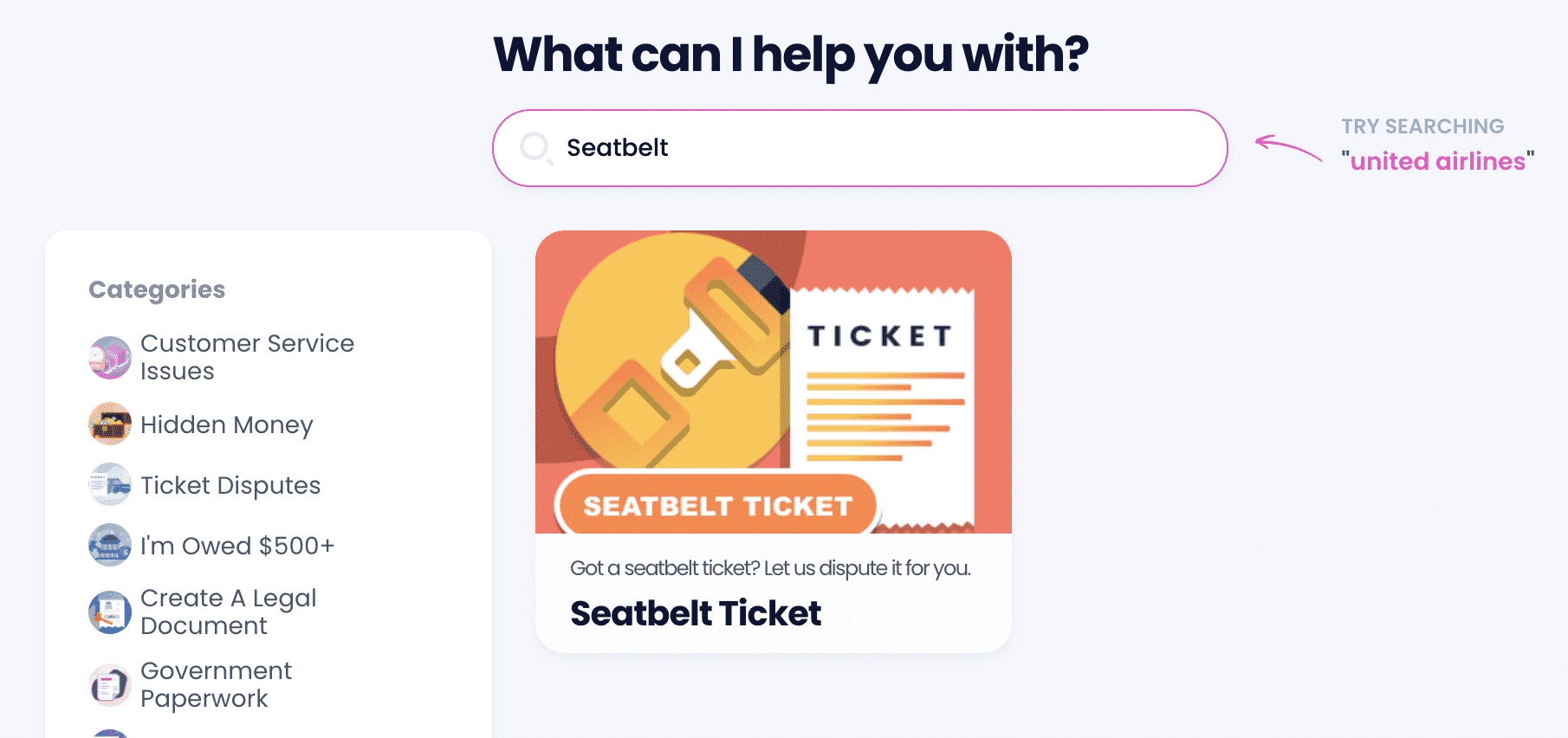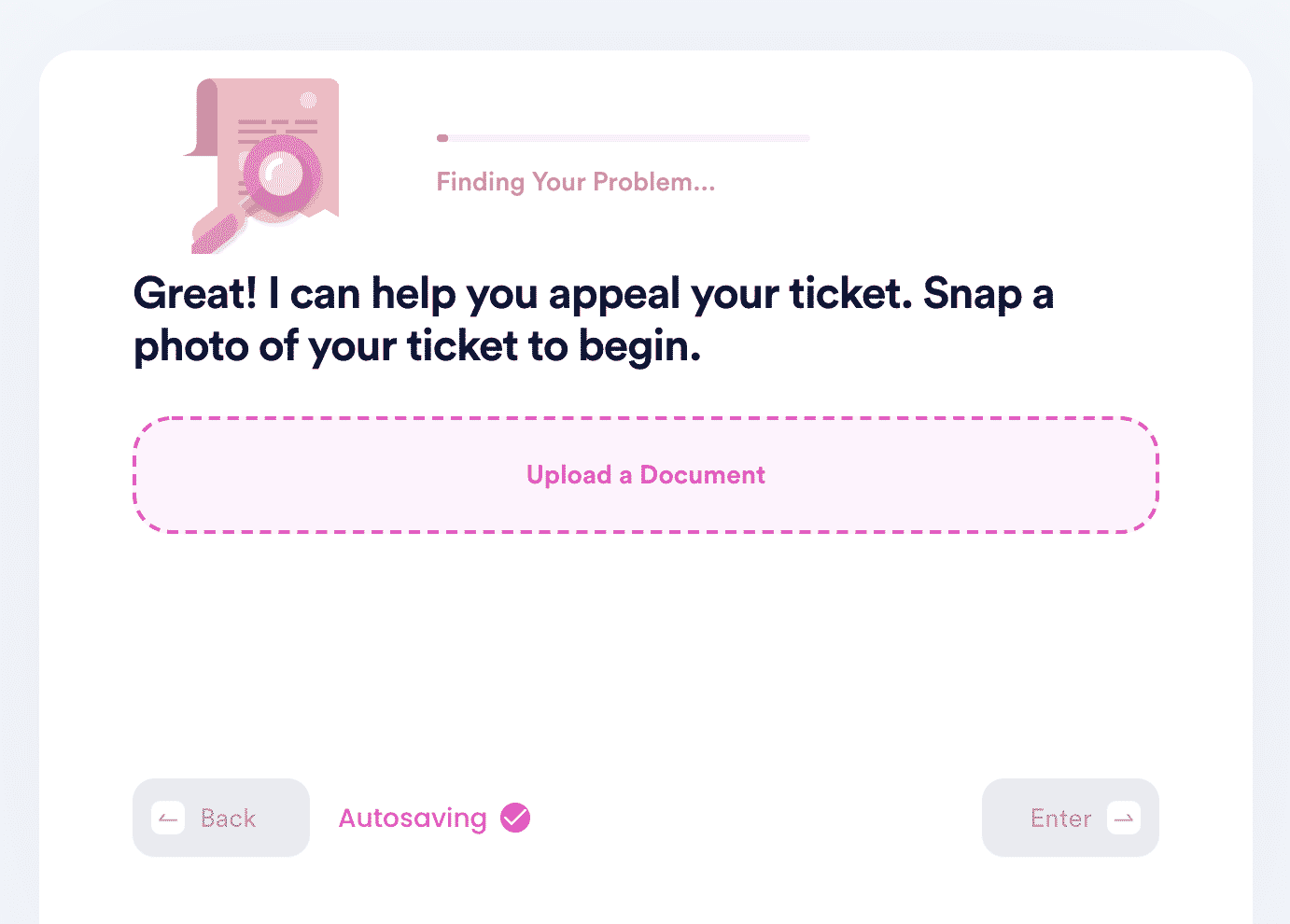DoNotPay Explains the RV Seatbelt Laws
Are you planning a road trip across the U.S. in your RV? You should put your and your passengers’ safety first, and complying with each state's RV seatbelt laws is the first and most important step towards that. This article will tell you all about different motorhome seatbelt and safety seat regulations by state—both for adults and children.
RV Seatbelt Laws by State
Some states require only people in front seats to wear seatbelts, while others make sure that the passengers in the back are also buckled up. You can consult the table below to check the rules and regulations for each state in the U.S.:
| State | Must Wear a Seatbelt in RV |
|---|---|
| Alabama | Passengers in the front |
| Alaska, Arkansas, California, Colorado, Delaware, Hawaii, Iowa, Kentucky, Maine, Massachusetts, Montana, New Mexico, Oregon, Rhode Island, South Carolina, Utah, Vermont, Washington, and Wyoming | Everyone |
| Arizona |
|
| Connecticut |
|
| Florida |
|
| Georgia |
|
| Idaho | Everyone in the RV must buckle up if the vehicle doesn’t weigh over 8,000 pounds |
| Illinois | Every occupant of a motorhome under 15 |
| Indiana | The driver and front-seat occupants |
| Kansas |
|
| Louisiana |
|
| Maryland |
|
| Michigan |
|
| Minnesota |
|
| Mississippi |
|
| Missouri |
|
| Nebraska |
|
| Nevada | Everyone, unless the motorhome is traveling less than 15 miles per hour |
| New Hampshire | All passengers, unless the RV is a 1968 or older model |
| New Jersey | Front-seat occupants under 18 |
| New York |
|
| North Carolina |
|
| North Dakota |
|
| Ohio | Front-seat occupants |
| Oklahoma |
|
| Pennsylvania |
|
| South Dakota |
|
| Tennessee |
|
| Texas |
|
| Virginia |
|
| West Virginia |
|
| Wisconsin |
|
Children Seatbelt and Safety Seat Regulations
Children seatbelt laws also differ from one state to another. Categories by which they are mostly determined are the age and weight of a child. Most states require drivers to install safety seats according to the manufacturer’s instructions and place them in a forward-facing position.
Can You Sleep in Your RV if You Have a Seatbelt On?
Many states forbid sleeping in a bed in an RV, but you can sleep in a passenger seat if you’re secured by a seatbelt.
Some states allow sleeping in beds, but that’s highly inadvisable as it’s dangerous in the event of a car crash.
What if You Get a Ticket for Not Wearing a Seatbelt?
Seatbelt laws differ from one state to another, but if you violate them, the consequences you might face are usually the same and include:
In some states, if you don’t pay your fine, you might have to go to court or even end up in jail. Luckily, you can try to get your ticket overturned. Here's how you can dispute your fine:
- Show reasonable doubt—If you choose to argue on the basis of reasonable doubt, you will most likely claim that the police officer who pulled you over made a mistake. There are plenty of excuses you can use, such as:
- You unbuckled your seatbelt briefly to reach for something
- The color of your seatbelt was the same as your clothes
- You were wearing a seatbelt when the police officer pulled you over, but then you unbuckled it once you stopped your car
- Take a due diligence defense—By using this argument, you are claiming that you had a valid reason for not wearing a seatbelt. You can say that you:
- Have a medical condition that prevents you from being restrained
- Were driving in reverse
- Had an emergency
Many people take the easy way out and pay the ticket, even if it’s costly. If you need a fast and affordable way to create a strong appeal letter, you should .
How To Dispute a Seatbelt Citation With DoNotPay
Avoiding the complicated process of disputing a seatbelt ticket is possible with the world’s first AI Consumer Champion—DoNotPay. Whether you made the offense in a state where it's considered a moving violation or not, DoNotPay can help you!

To get a fully personalized appeal letter, you should follow these steps:
- and open our Seatbelt Ticket product
- Upload a photo of your ticket
- Provide information about the event, such as who got the ticket
- Tell us which argument you’d like to use
After you complete the steps, DoNoPay will generate a customized appeal letter and mail it to the authorities in charge.

DoNotPay Turns Any Tiring Task Into a Piece of Cake
Are you tired of dealing with bureaucratic or matters on your own? You no longer have to—as soon as you subscribe to DoNotPay, we’ll take any exhausting task off your plate.
Our app is capable of drawing up documents—including marital settlement agreements, , , , and affidavits to homeschool—getting them notarized remotely, filing complaints against companies, suing any individual or corporation in small claims court, sending FOIA requests, and so much more.
The World’s First AI Consumer Champion Offers So Much More
DoNotPay’s capabilities don’t end there—we can also:
- Cancel any subscription
- Get you a burner number
- Help you get a tourist visa
- Send an item return request
- Help you apply for any clinical trial
- Create perfect and valid passport photos
- Schedule a DMV appointment fast in your stead
- Look up any sex offender lurking in your neighborhood
- Help you get in touch with government representatives
- Sign you up for free trials with a virtual credit card
- File warranty and insurance claims for you
- Help you fight email and text spam
- Get you in touch with an inmate
- Mail anything in your stead
- Offer an online fax service
 By
By